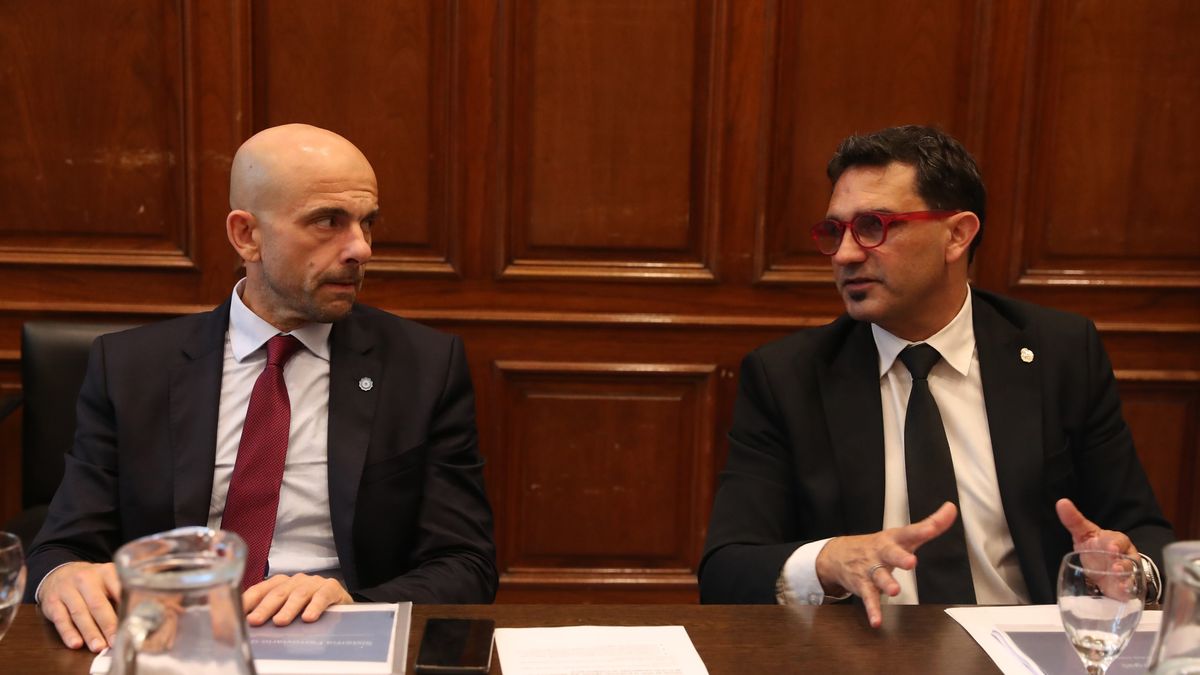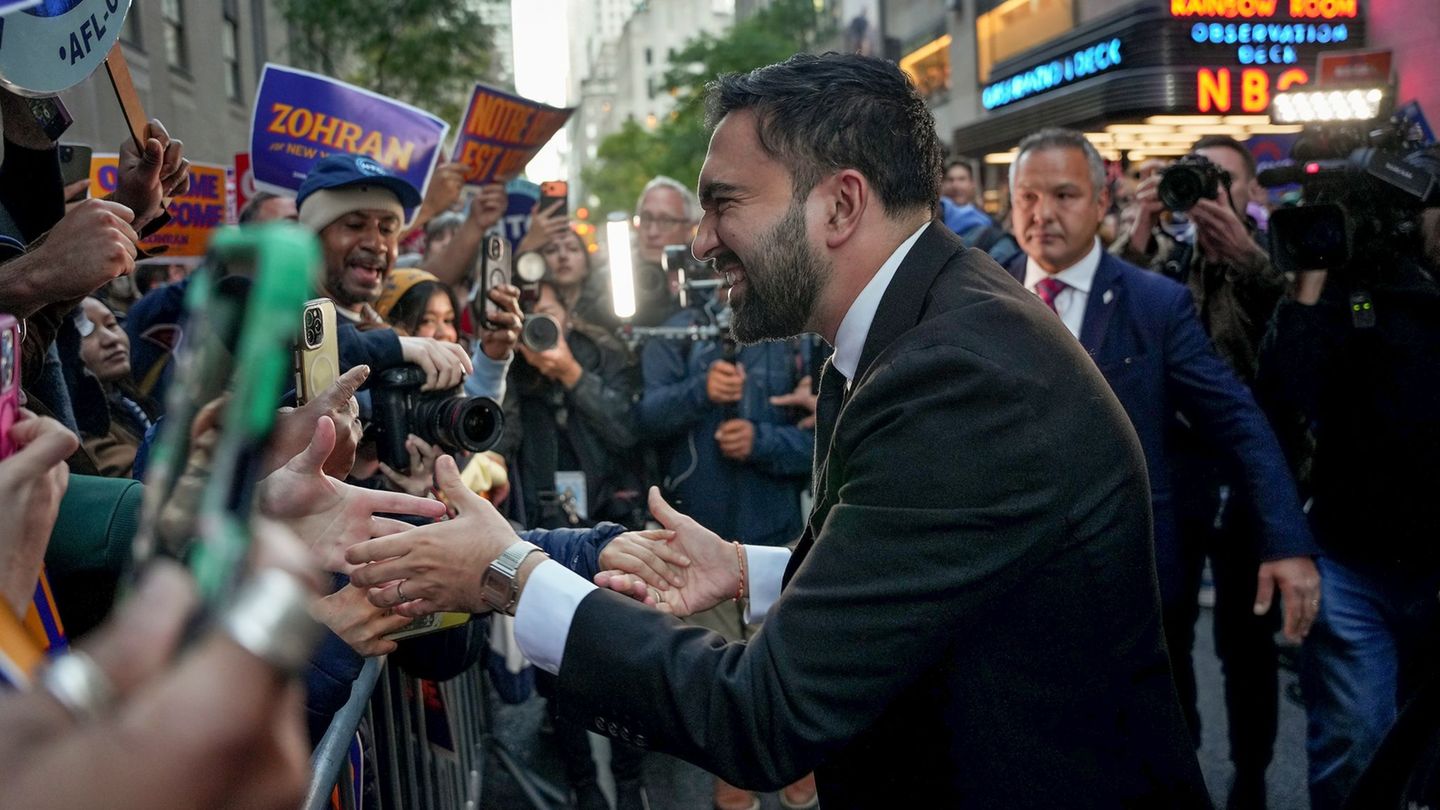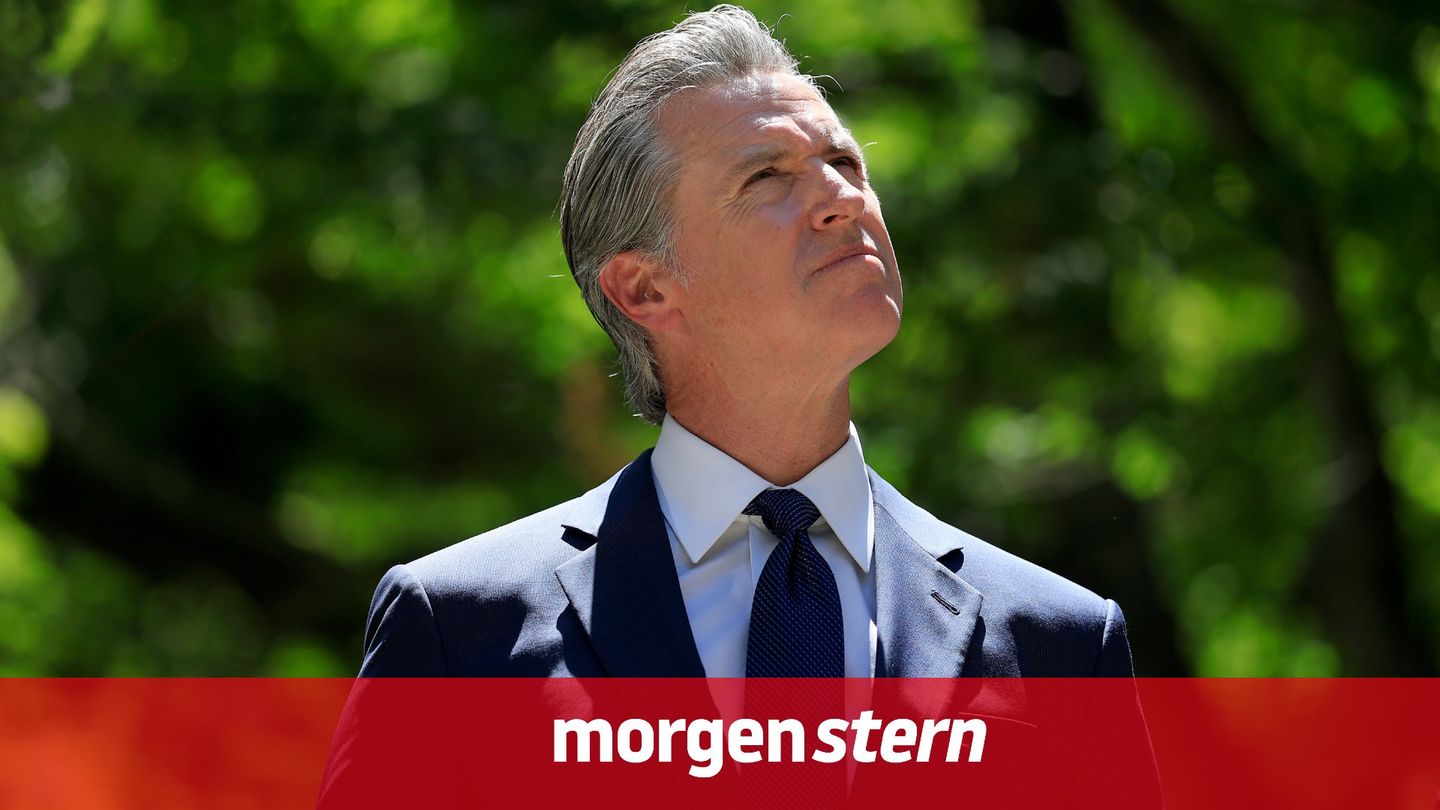Chaer and Mogetta (1).jpeg
Mogetta and Chaher, along with journalists.
Q: Can this concession have objections?
FM: This process can be carried out because it is included in the Base Law, therefore we are executing not only the presidential mandate, but also that of the National Congress.
Q: How is the company doing?
FM: One fact that explains the deterioration of the company is that the limit on the number of tons that Belgrano Cargas can transport has remained frozen since 2009, while agricultural production – which represents 60% of the cargo transported – multiplied by five times.
What will be the methodology for privatization
The head of the Agency for the Transformation of Public Companies, Diego Chaher, explained that seven differentiated concession processes will be implemented, namely:
- A concession for the road with the right to collect tolls that will include the transfer of the affected employees to it.
- Two locomotive concessions that will encourage competition that includes their respective drivers.
- Two wagon concessions.
- “Two workshop concessions that include associated employees.”
This process is known as open access infrastructure licensing. “No one has the entire concession,” Chaher clarified..
belgrano cargoes.PNG

“Deverticalization with Open Access is precisely dividing the company into different concessions. On the one hand, the administration and maintenance of the infrastructure will be concessioned, which is ultimately who will manage the rights of way, will negotiate the rate for those rights of way, how much will the toll be charged, to whom will it go? to be the other who is the one who operates the train”, the official explained.
The difference with the nineties is that the Open Access law did not exist and for this reason a comprehensive concession was made, both officials explained.
For his part, the Secretary of Transportation commented that due to the comprehensive concession system, the concessionaire “He ended up carrying his own load.” The official intention is “avoid monopolistic behavior.” The privatization of Belgrano Cargas will not include the lands and roads that will continue under the orbit of the national State.
Q: Are there any interested parties for the Belgrano Cargas?
Franco Mogetta: There has been a lot of talk with operators in the same way as was done with the airline sector. When we started implementing the open skies policy, we spoke to all industry players.
There are many interested companies, many private individuals interested in all aspects of transportation who have been consulting us about the same thing, both in Aerolíneas Argentinas, and also in the bidding process for road works.
Q: Can we know which companies expressed interest?
FM: We are careful not to give many details of the identity of these private companies for reasons of confidentiality and commercial strategy of the companies, but, we can say, that many private companies have approached us.
belgrano cargoes 2.PNG
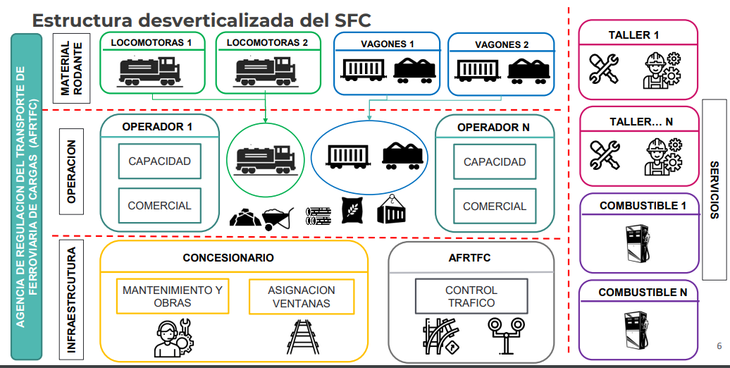
Tenders
The Belgrano Cargas tender will be open to both national and international interested parties. An important point is that current operators of Metrovías (Grupo Roggio) and Ferrovías (Emepa) already operate the Urquiza and the Belgrano Norte can participate and when their concessions expire, these train lines will also be put out to tender under the deverticalization with Open Access, officials explained.
Currently, those interested in state-owned companies can send their interest to the offices of the relevant areas.
automotive transport
Q: Will this same process of separating maintenance and bus concessions, for example, be followed for the automotive system?
FM.: In the system For groups, what was eliminated in the last deregulation is that there are no more concessions, only authorizations, which is more or less the same principle that has been followed in aeronautical matters, where the system of public hearings and concessions of rights has also been eliminated. routes. Today, any airline that wants to operate a commercial route simply has to have authorization or authorization from ANAC and not undergo public hearings.
Q: Does this mean that anyone could provide the passenger transfer service?
FM: This is already allowed. The new inter-jurisdictional motor transport registry has been created, where, and this is very important to highlight, without relaxing even half of the safety requirements or technical conditions of the vehicles, it is rigorously maintained as it was. What many lobbyists for bus companies want to make people believe or instill fear that there are localities that would be disconnected is quite the opposite. What is being promoted is greater connectivity. Before, one had to have a vehicle with certain conditions of size or minimum number of seats and today that no longer exists. With the same decree we have allowed the operation in ports and airports of all types of transportation, even transportation that is contracted by applications as long as they are transportation companies.
Q: Are Argentina going to prepare the specifications or are they going to request the collaboration of an international entity?
Diego Chaher: We are going to use all the tools necessary to ensure that it has the corresponding levels of transparency. In all processes, not only concessions, we also think about exit to the capital market. In some cases there will be a system of concessions, in others there will be bidding.
Q: In the case of passenger train lines, is this process advanced?
FM: Again, everything that can be in the hands of the private sector, will be in the hands of the private sector. Today, of the 7 lines that circulate through AMBA, 2 are already in private hands due to concessions that have been extended. We are already working to be able to put out to tender the other lines that operate under the state company.
But it will be with a different format than the current one since we want to give greater relevance to productivity. That is, the incentive for companies to transport more paid passengers. Today, the truth is that the system of operating accounts that exists makes it little tempting or attractive or stimulating to transport passengers, taking into account that the account that passes to the company at the end of the month is what the State ends up paying to the private sector. You could say that private has nothing more than the name.
Chaer and Mogetta (2).jpeg
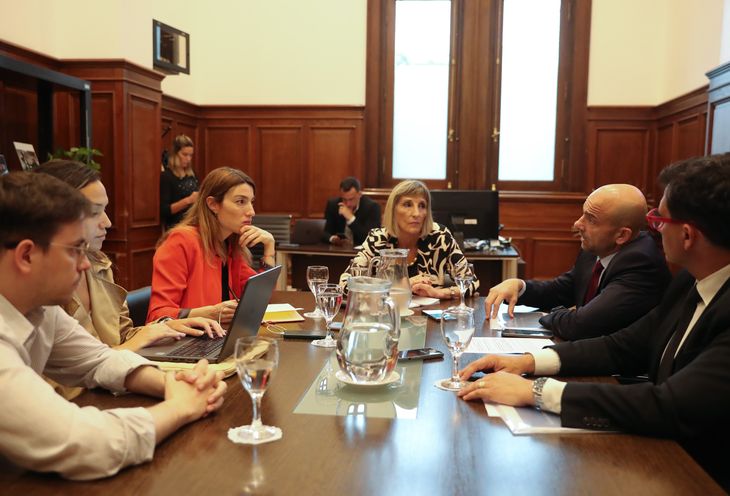
Q: Would it be a concession with service improvement objectives?
FM: It would be a system called Running Kilometer Car or Commercial Kilometer Car (CKC). What is sought there is precisely to promote or encourage greater numbers of passengers transported per kilometer, with which work is being done on this modality to be able to have a difference with the model that has been followed in the nineties.
Q: Is the intention that at some point the State will stop subsidizing transportation?
FM: Logically, the idea is, both in automobile transport and rail transport, to withdraw or reduce the state subsidy or to the minimum possible. When we took over, the subsidy represented 94%, and today we are below 70%, closer to 60% so that the passenger car system can function.
Meanwhile, on trains it is still above 90%. An issue that we also have to resolve is evasion. For this reason, I was just talking about the transported paid passenger, because they are two different numbers, the transported passenger and the transported paid passenger. On trains, evasion is very high.
Source: Ambito

